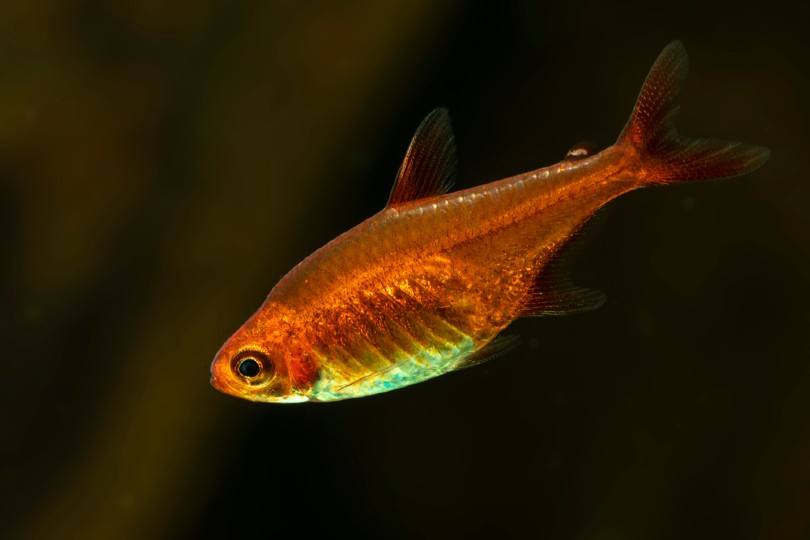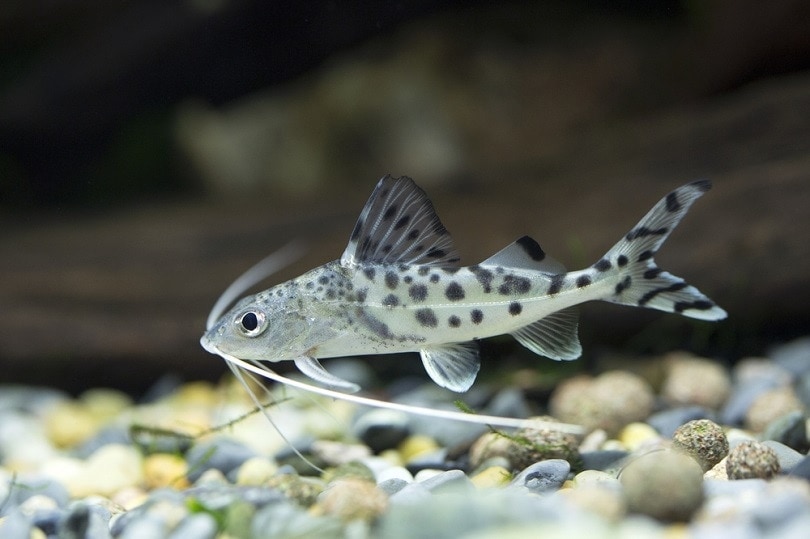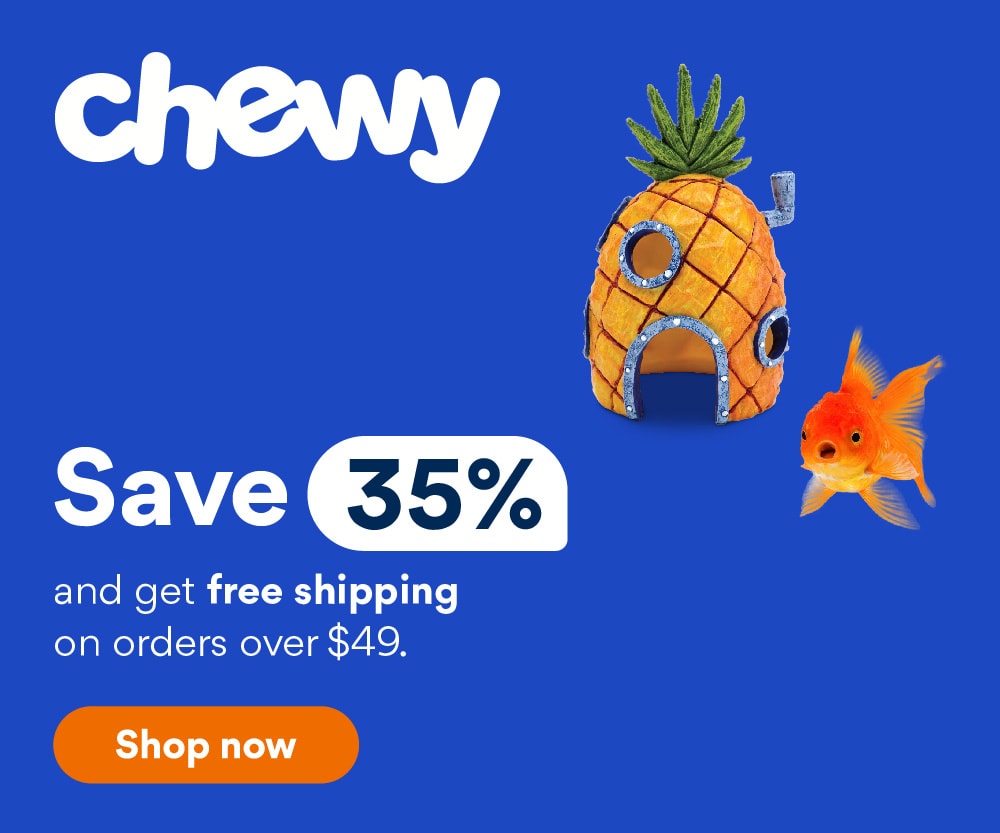Why You Should Never Release Pet Goldfish Into Wild Ponds or Lakes
Updated on
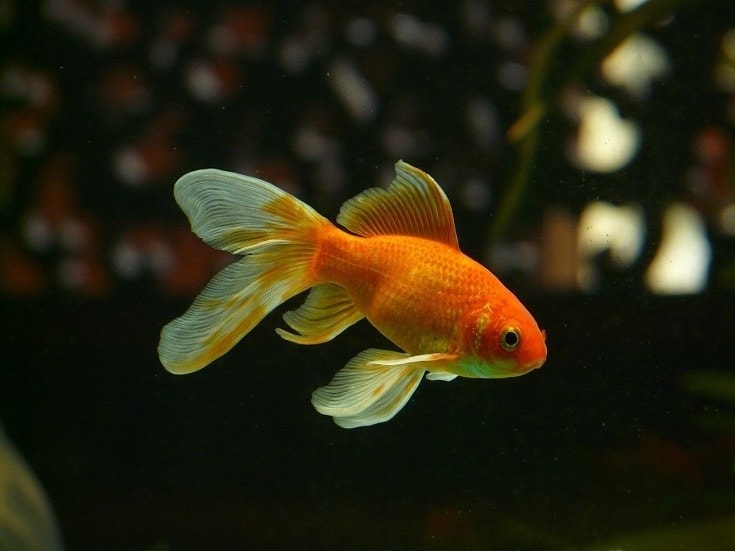
Goldfish are the most common pet fish in the world, and their popularity has led to more environmental issues from people not disposing of their goldfish properly or releasing these fish into the wild. Some goldfish owners might think that their goldfish will be better off in a lake or pond in the wild, while others might dispose of any unwanted goldfish into wild waterways because they are unsure what to do with the fish.
There are several issues with releasing any pet fish into the wild which we discuss in this article. Not only can this be detrimental to the health of the goldfish, but it can also lead to overpopulation in wild waterways and negatively impact the natural ecosystem where the goldfish was released.
In this article, we will explain why you should never release your goldfish into wild waterways, and what you should do instead.
Can Goldfish Live In the Wild?
Goldfish are domesticated fish, which means that they have been kept as pets by humans for thousands of years. Since goldfish are related to carp, which are wild fish, some people may assume that goldfish will do fine in the wild, but this is not true. Even though some goldfish can live in the wild, it is not recommended to release them into wild waterways.
Pet goldfish do not belong in the wild, even though some might survive. These are large growing fish that can live up to 20 years of age. For most pet owners, 20 years is a long time to commit and care for a pet and many new goldfish owners do not know how much care a goldfish will need or how long it can truly live.
There have been many sightings of pet goldfish in wild lakes and ponds where they do not belong, and the only way they could have got there is if they were released into these waterways. Streamlined goldfish like the common or comet goldfish seem to be the typical type of goldfish discovered in these wild waterways, most likely because these types of goldfish have a better chance of survival than fancy goldfish.
This is mainly due to the streamlined goldfish having a similar body shape and function to their carp ancestors. This gives the goldfish a better chance of survival in the wild, but it would still be a cruel and difficult life for the goldfish to live. Any goldfish under 8 inches will be eaten first by native animals, but most pet goldfish will succumb to injuries, disease, starvation, or suffer in unideal water conditions.
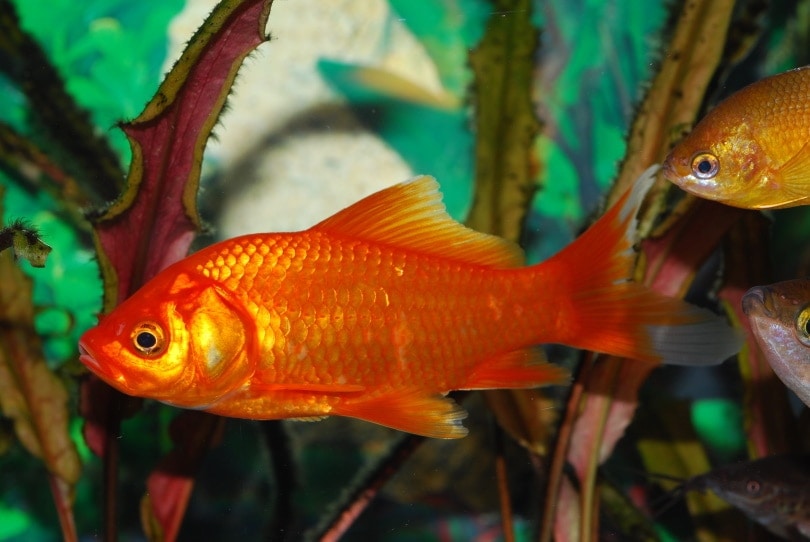
The 5 Reasons Why You Shouldn’t Release Goldfish Into the Wild
Goldfish are not invasive when they are kept as pets in captivity, but once they are released into the wild, they will do more harm than good.
1. It is not permitted
Releasing ornamental fish into wild waterways as fish movements are regulated by the Environment Agency and it is considered an offense under the Keeping and Introduction of Fish Regulations 2015.
2. It is inhumane
Lots of pet fish like goldfish are not able to survive in the wild and are likely to die, which is an offense according to the Animal Welfare Act.
3. It disrupts the Ecosystem
Goldfish in the wild will start to eat native plants and aquatic life, which disrupts the ecosystem.
4. Can harm other wildlife
Goldfish can carry disease-causing pathogens that can be fatal to native wildlife.
5. It will compete for food with other wildlife
Native wildlife and goldfish will compete for resources like food and space. This can cause the native wildlife populations to deplete.
Is It Safe To Release Goldfish Into a Lake or Pond?
You should avoid releasing pet goldfish into wild waterways like lakes or ponds. Even if there is a chance that the goldfish will survive, this will have negative consequences on the surrounding environment and ecosystem, and even the goldfish itself. It is not a safe option for the ecosystem and goldfish, and the pros greatly outweigh the cons.
Pet goldfish can disrupt the entire ecosystem in the area where they have been released, which negatively impacts other aquatic wildlife in the bodies of water along with the vegetation. Pet goldfish can introduce new diseases and pathogens in the wild waterway that the current wildlife has no immunity against. You will also find that goldfish might eat pellets and flakes as pets when kept in an aquarium, but no one is feeding them these foods in the wild.
Instead, the omnivorous goldfish will start to compete with the native populations for food with their ferocious appetite. They will start eating the vegetation and any other aquatic life that they can fit into their mouths. With the average goldfish growing up to 12 inches in captivity, they can grow up to 14 to 18 inches in the wild and weigh up to 5 pounds.
Pet goldfish grow much bigger in the wild than they would in a home aquarium, causing destruction to native waterways and disrupting the ecosystem. Goldfish are also prolific breeders, so a female and male goldfish pair can quickly expand to hundreds of goldfish.
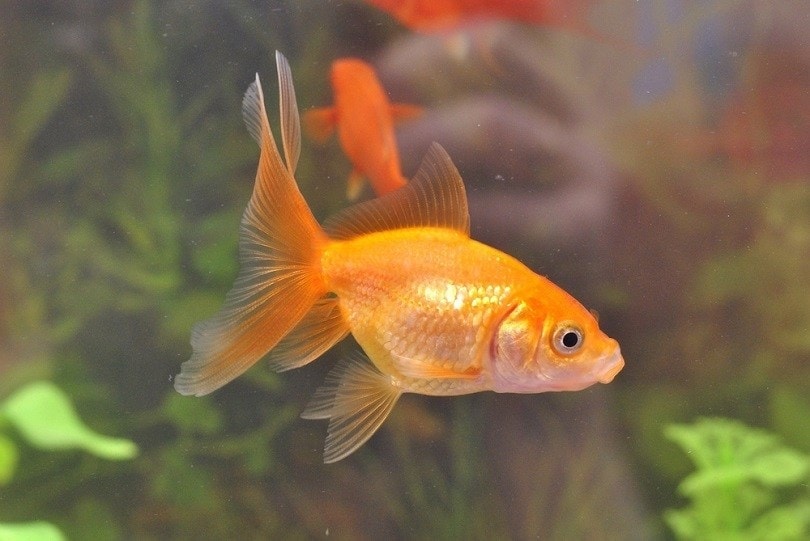
What To Do With Unwanted Goldfish
Goldfish can quickly become unwanted pets for many people, especially since these fish grow so big and need large aquariums, which some people might not be able to provide.
Why do goldfish become “unwanted”?
- Owners are unable to care for the fish any longer and release them.
- Children become bored of the pet goldfish and parents release the goldfish.
- Owners aren’t aware of the 20-year commitment goldfish can be.
- Owners can no longer provide the right aquarium for a large adult goldfish or are moving and cannot keep the goldfish in their new home.
- The goldfish was given as a gift to someone who doesn’t want them.
This has led to goldfish being released in wild ponds and lakes, or even flushed down the toilet and ending up in waterways. Even dead fish that are disposed of by flushing down a toilet may carry diseases and pathogens that can affect native populations if it gets carried into a waterway.
What should you do instead?
Instead of releasing goldfish into wild waterways like ponds and lakes, you should choose these methods:
- Check if any friends or family members have a pond or goldfish aquarium and would like to take the goldfish.
- List the goldfish up for adoption with a small fee on social media for a fellow fish owner to adopt.
- Rehome the goldfish on pet-selling websites.
- Take the goldfish back to the pet store and ask if they are interested in taking the goldfish if you cannot rehome it.
- If the goldfish is already dead, you can bury the fish in a secured pot plant or your garden. If you do not want to bury the goldfish, you can cremate the fish or dispose of it in a secured biodegradable bag in the organic waste bin. Avoid flushing the goldfish down the toilet.
- If the goldfish is sick and too ill to be rehomed, sold, or accepted back to a pet shop, humanely euthanizing the fish will be a better option.
If you are unsure what to do with your unwanted goldfish, contact your nearest wildlife center to find out more information on what you can do.
Conclusion
Once you have a pet in your care, it’s important to care for it responsibly. This also includes appropriately dealing with unwanted pets. If you choose to get a goldfish as a pet, make sure you can commit to its care requirements and lengthy lifespan. If you feel that you can no longer care for a goldfish, it is better to sell or rehome them rather than release them into the wild.
Pet goldfish do not belong in the wild, and it will not be a better outcome for both the natural ecosystem and the goldfish themselves.
Featured Image Credit: Hans, Pixabay




